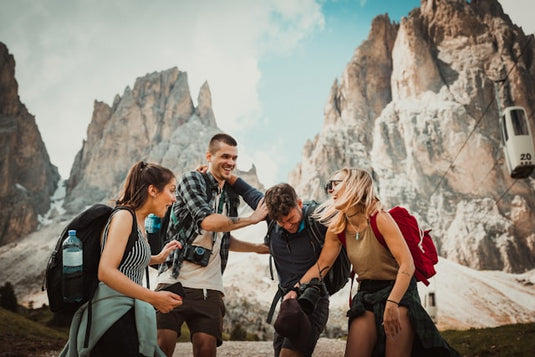Introduction
In today's fast-paced world, travel often becomes a race to tick off as many destinations as possible in the shortest amount of time. However, there's a growing movement advocating for a different approach: slow travel. This method emphasizes quality over quantity, encouraging travelers to immerse themselves in a destination, understand its culture, and form meaningful connections. In this post, we'll explore the benefits of slow travel and how it can transform your travel experiences.
1. Deeper Cultural Understanding
One of the primary benefits of slow travel is the opportunity to gain a deeper understanding of a destination's culture. By spending more time in one place, you can engage with locals, participate in cultural events, and learn about traditions and customs. This immersive experience allows you to see beyond the typical tourist attractions and understand the essence of a place.
2. Reduced Stress and Fatigue
Rushing from one destination to another can be exhausting and stressful. Slow travel eliminates the need for constant packing and unpacking, long travel days, and the pressure to see everything. By staying in one place for an extended period, you can relax, unwind, and enjoy a more leisurely pace. This approach reduces travel fatigue and allows you to return home feeling rejuvenated rather than worn out.
3. Authentic Experiences
Slow travel opens the door to authentic experiences that are often missed in a whirlwind tour. Whether it's cooking with a local family, attending a traditional festival, or exploring off-the-beaten-path locations, these experiences provide a genuine connection to the destination. You'll have the time to discover hidden gems and engage in activities that reflect the true spirit of the place.
4. Environmental Benefits
Traveling slowly is more environmentally friendly. By staying in one location for longer periods, you reduce your carbon footprint associated with frequent flights, train rides, and car rentals. Additionally, slow travelers are more likely to support local businesses and use public transportation, further minimizing their environmental impact.
5. Cost-Effective Travel
Slow travel can be more budget-friendly than fast-paced trips. Long-term accommodation rentals, such as apartments or house-sitting, are often cheaper than nightly hotel stays. Cooking your own meals instead of dining out constantly can save money, and staying in one place reduces transportation costs. This cost-effective approach allows you to stretch your travel budget further and potentially stay on the road longer.
6. Improved Mental Health
The constant movement and busy itineraries of traditional travel can take a toll on mental health. Slow travel promotes mindfulness and presence, allowing you to fully experience and appreciate each moment. The slower pace provides more time for reflection, relaxation, and self-care, contributing to better mental well-being. It also allows you to build a routine, which can be comforting and grounding while on the road.
7. Building Meaningful Connections
Slow travel fosters the development of meaningful connections with both locals and fellow travelers. By staying in one place, you have the chance to build relationships and create a sense of community. These connections can lead to lasting friendships, deeper cultural insights, and even opportunities for future travel or collaboration.
8. Enhanced Creativity and Inspiration
A slower pace of travel provides the mental space needed for creativity and inspiration to flourish. Whether you're a writer, artist, or simply someone who enjoys creative pursuits, the time and tranquility afforded by slow travel can spark new ideas and perspectives. The rich experiences and cultural immersion can fuel your creative endeavors in ways that fast travel cannot.
9. Supporting Local Economies
By spending more time in a destination, slow travelers contribute more significantly to the local economy. Frequenting local businesses, markets, and attractions ensures that your money directly benefits the community. This support can help sustain local traditions, crafts, and industries, preserving the unique character of the destination.
10. Personal Growth and Learning
Slow travel offers abundant opportunities for personal growth and learning. Facing new challenges, adapting to different environments, and engaging with diverse cultures can enhance your problem-solving skills, empathy, and resilience. Each experience becomes a lesson, contributing to your development as a more worldly and understanding individual.
Conclusion
Slow travel is a transformative approach that allows you to experience destinations on a deeper, more meaningful level. It promotes cultural understanding, reduces stress, and supports sustainable travel practices. By embracing slow travel, you can enrich your journeys, form lasting connections, and create memories that truly resonate. Next time you plan a trip, consider slowing down and savoring the journey – you'll be amazed at how much more rewarding your travel experiences can become.




